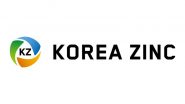Frankfurt, Dec 12 (AP) The European Central Bank has cut rates by a quarter percentage point amid signs of weakening growth and concern about the impact of political chaos in France and the possibility of new US import tariffs.
The bank's rate-setting committee made the decision Thursday at its skyscraper headquarters in Frankfurt to lower the benchmark from 3.25% to 3%.
The bank said that efforts to return inflation to its 2% target were succeeding.
“The disinflation process is well on track,” it said in a statement accompanying the decision.
Lower rates should support growth amid signs that the post-pandemic recovery is slowing in the 20 countries that use the euro currency and concerns that US President-elect Donald Trump might impose new tariffs, or import taxes, on goods imported to the US after he is inaugurated Jan 20. That sends a cold chill through the business world in Europe, where exports are an outsized contributor to growth and employment.
Yet there are internal risks as well.
French Prime Minister Michel Barnier resigned Dec 5 after losing a vote of confidence, leaving the France without a functioning government and no clear majority in parliament able or willing to tackle the country's excessive budget deficit. Elections cannot be held before June. While the end of the Barnier government hasn't triggered a financial crisis, it adds uncertainty about how long it will take for France to right its finances.
A half-point cut “would be a security move to preempt any potential risks for the eurozone economy coming from the next US administration's potential economic policy choices and political woes in France and Germany,” said Carsten Brzeski, chief eurozone economist at ING bank.
Opting for a quarter-point move “would rather follow the cautious meeting-by-meeting approach” that the bank has pursued since it started cutting rates in June, Brzeski said. One argument for a smaller rate cut might be a reluctance by the ECB to risk the perception that it is getting involved in French national politics: “This is speculation the ECB would clearly rather avoid,” Brzeski said.
Germany's governing coalition broke up in November, and a new national election is expected Feb 23. Weeks of coalition negotiations are expected to follow before a new government is in place. That leaves the two biggest eurozone economies politically adrift for months.
All that has dinged the confidence that businesses need to borrow, invest, expand production and take risks. The survey index of purchasing managers compiled by S&P Global came in at 48.3 in November, with levels below 50 suggesting the economy is slowing. The Sentix survey of investor confidence fell in its first update after the US election, by 4.6 points to minus 17.5.
Inflation has fallen steeply to 2.3% from its peak of 10.6% in late 2022, shifting attention from reigning in consumer price increases to worries about ongoing weak growth. The eurozone is expected to grow 0.8% this year and 1.3.% next year, according to forecasts from the European Union's executive commission.
Higher ECB rates helped squelch Europe's outbreak of inflation in the wake of the pandemic and Russia's invasion of Ukraine. Higher central bank benchmarks influence borrowing costs throughout the economy, making it more expensive to borrow and spend, and thus taking pressure off prices.
Yet that also presents a danger in that those same high rates could stall the EU's goal of more vigorous economic growth.
A drumbeat of announcements regarding job cuts in coming years at major firms in Germany has not improved the mood. They include auto technology and parts firm Bosch, which plans to drop 5,500 jobs, 3,800 of them in Germany; auto supplier ZF Friedrichshafen, which plans to drop 14,000-15,000 jobs; and Ford Motor Co, which is to drop 4,000 jobs in Europe, 2,900 in Germany, and steelmaker ThyssenKrupp with 11,000 planned cuts. Volkswagen plans to shut as many as three German plants, according to its employee representatives who are negotiating with the company in an effort to block the closings.
The ECB determines interest rate policy for the 20 of 27 EU member countries that have joined the euro currency. (AP)
(This is an unedited and auto-generated story from Syndicated News feed, LatestLY Staff may not have modified or edited the content body)













 Quickly
Quickly
















